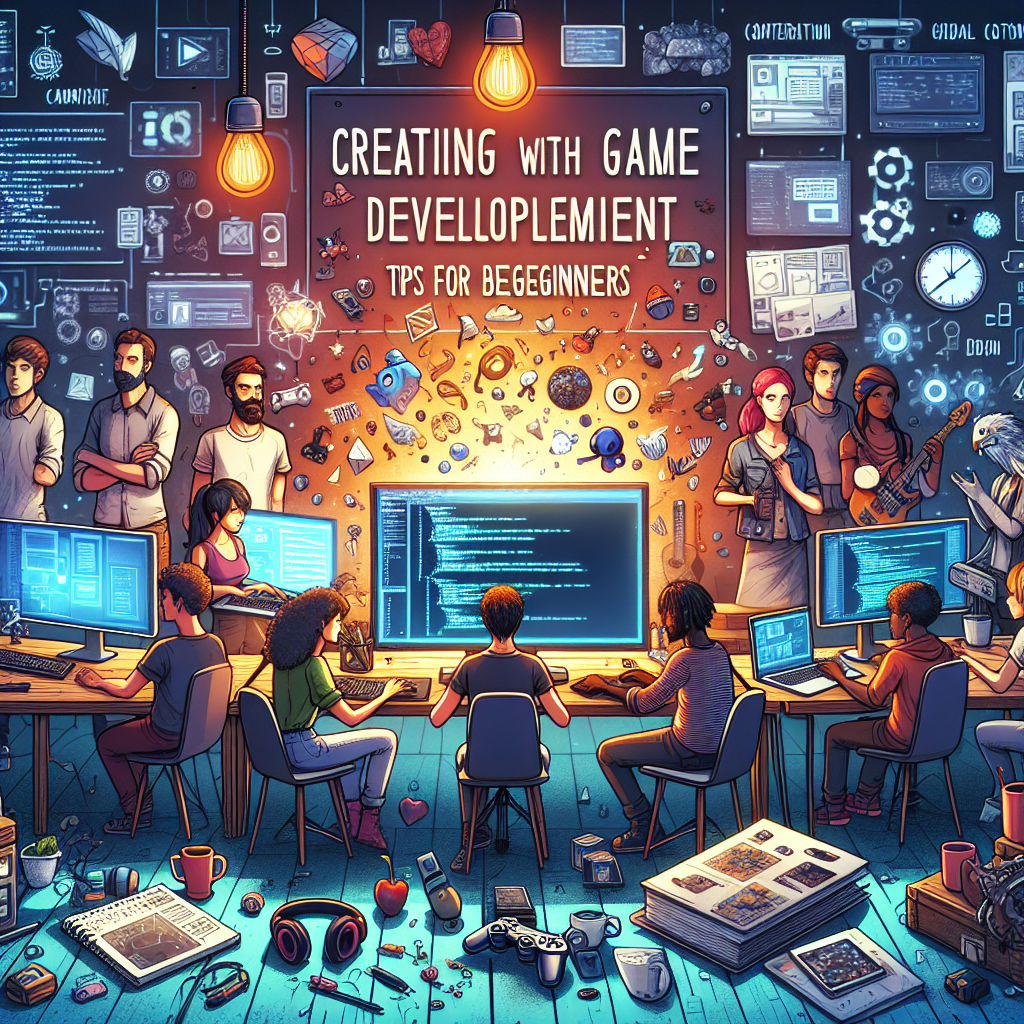Creating with Passion: Indie Game Development Tips for Beginners
In recent years, the landscape of the gaming industry has become more accessible and diverse, thanks in part to the rise of indie game development. With passion and creativity, aspiring developers can bring their unique visions to life, producing games that resonate with players worldwide. However, getting started can be a daunting task. Here are some tips to help beginners navigate the exciting yet challenging world of indie game development.
1. Find Your Passion Project
Before diving into development, take time to reflect on what excites you. Your passion will serve as the driving force behind your project. Consider what genres, themes, or stories resonate with you. Whether it’s a puzzle game, a narrative-driven adventure, or a retro-style platformer, choose an idea that ignites your enthusiasm. Remember, the development process can be long and complex, so selecting a project that you genuinely care about will help you stay motivated.
2. Start Small and Scale Up
As tempting as it may be to create an expansive world with intricate gameplay mechanics, starting with a small project is crucial. Smaller projects allow you to learn essential skills and test your ideas without feeling overwhelmed. Consider developing a simple prototype or a mini-game to get your feet wet. Once you gain confidence and experience, you can tackle more elaborate concepts.
3. Learn the Basics
While it’s easy to be enamored with game design and storytelling, having a solid foundation in programming and game mechanics is crucial. Platforms like Unity and Unreal Engine offer free resources and tutorials that cater to beginners. Additionally, there are various online courses and communities where you can learn game design, art, and sound. Acquiring these fundamental skills will help you realize your vision more effectively.
4. Utilize Game Development Tools and Resources
Take advantage of the plethora of tools available to indie developers. Game engines like Godot, GameMaker Studio, and Construct make it easier to create games without extensive programming knowledge. Free asset libraries such as Kenney.nl or OpenGameArt.org can provide you with art and sound assets, allowing you to focus on the gameplay. Ensemble these resources to streamline your development process and keep your project moving forward.
5. Develop a Prototype
Before fully committing to a project, create a prototype. A prototype is a simple version of your game that allows you to test mechanics, gather feedback, and refine your ideas. It doesn’t need to have polished graphics or sound; its primary purpose is to validate your concept and identify potential issues early on. Once you’ve iterated on the prototype and gathered feedback, you can move forward with building the final game.
6. Seek Feedback and Iterate
Feedback is a vital part of the development process. Share your prototype with friends, family, or online communities and solicit honest opinions. Critiques will help you identify strengths and weaknesses in your game, enabling you to make informed adjustments. Remember, receiving feedback can sometimes be challenging, but constructive criticism is invaluable for growth.
7. Network with Other Developers
Building connections within the indie game development community can be incredibly beneficial. Attend game jams, workshops, and conferences to meet like-minded individuals, gain insights, and share experiences. Online forums and social media platforms also provide opportunities to learn from others, collaborate, and showcase your work. Networking may lead to partnerships or mentorships that can significantly enhance your development journey.
8. Be Prepared for Challenges
Game development isn’t without its hurdles. From technical challenges to creative blocks, there will be moments of frustration. Embrace these obstacles as learning opportunities. Establish a routine, set achievable goals, and don’t hesitate to take breaks when needed. Remember, persistence is key. Celebrate small victories to maintain motivation and enthusiasm.
9. Focus on Marketing Early
Once your game is nearing completion, don’t overlook the importance of marketing. Establish a presence on social media platforms, create a website, or start a blog to share updates and insights about your game. Engage with your audience and build a community around your project. Consider participating in indie game festivals or showcases to gain visibility and attract potential players.
10. Stay True to Yourself
As you navigate the complexities of game development, it’s essential to remain true to your vision. While it’s helpful to take inspiration from others, don’t be afraid to carve out your unique path. Authenticity resonates with players, and your passion will shine through in your work. Create the games that you want to play and share your voice with the gaming community.
Conclusion
Embarking on a journey in indie game development can be both thrilling and overwhelming. By embracing your passion, starting small, learning the basics, and remaining open to feedback, you can create a meaningful and enjoyable game. Remember to persevere through challenges, build connections, and stay true to your vision. With dedication and a dash of creativity, you can turn your dreams into reality and contribute to the colorful tapestry of the gaming world. So start creating, and let your passion guide you on this exciting adventure!




